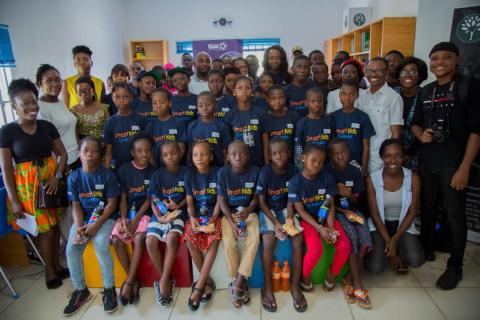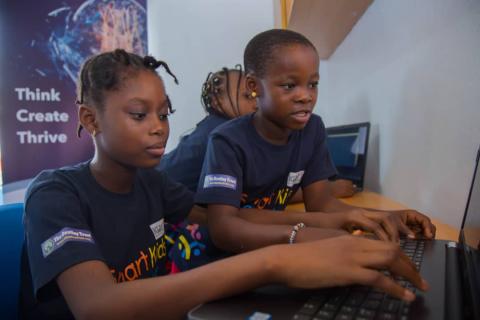
In the pilot phase of the project, the Centre targets equipping about 500 less-privileged children with digital skills. Children with specialized interest in computer programming will be enrolled in the Hub’s advanced programmes for coding and programming. With this, the organisation hopes it can give opportunity to under-represented children to acquire one of the most valuable skills in the future of work and also participate in the economy of the technology space.

As part of its empowerment and social inclusion drives, The Destiny Trust — a social intervention focused on the care, education, rehabilitation and empowerment of homeless children — has opened a coding and innovation development centre at Ibeju-Lekki, Lagos, for less-privileged kids.
The centre, ‘Kids Innovation Hub’, was launched on Saturday, and aims to empower rehabilitated street children and other young people from low-economic backgrounds with computer programming skills, and to support them in developing their ideas of relevant technology solutions especially for education and entertainment.
In the pilot phase of the project, the Centre targets equipping about 500 less-privileged children with digital skills. Children with specialized interest in computer programming will be enrolled in the Hub’s advanced programmes for coding and programming. With this, the organisation hopes it can give opportunity to under-represented children to acquire one of the most valuable skills in the future of work and also participate in the economy of the technology space.

The project is taking off under collaboration with CodeLagos (Lagos State Government initiative to train 1 million programmers), Gamaliel & Susan Onosode Foundation, Flying Doctors Nigeria and Mind the Gap, a key STEMS education stakeholder providing personnel and technical resource at the Hub.
The Centre will implement Lagos State’s Coding Education Framework and also sign up as a Cisco Academy Centre providing opportunity to participants to obtain Cisco certification after successfully undertaking Cisco’s online certification programmes.
“We believe strongly in the potential of every child irrespective of their circumstance of birth. This is why we are committed to enabling them to be their best,” Ambimbola Ojenike, Co-founder and Coordinator of the organization, said of the potential impact of the intervention.
“As the ability to interpret information and solve problems using technology becomes one of the most valuable skills in the world of work, we cannot say we are empowering disadvantaged children without equipping them with technology skills. Unfortunately, they would be left behind unless there are social initiatives deliberately aimed at giving them the opportunity to participate in the new digital world.
“We believe that teaching this category of children computer programming will provide tangible empowerment for the children and contribute to Nigeria’s human capital requirement for trained developers. The learning of programming will also improve the overall intellectual development of the children as they gain the ability to process and communicate ideas in an organized and logical way following the pattern of programming logic.”

The Destiny Trust provides education, empowerment and care to homeless children and other young people within disadvantaged groups. About 100 children are supported annually to enroll in school for the first time or return to school.
For homeless children, the organization runs a residential learning and rehabilitation centre at Bogije, Ibeju-Lekki, Lagos, where it accommodates the care and rehabilitation of children who live in the centre. It also provides a day learning centre to children within the host community.
Current empowerment programmes at the centre include training in fashion, music, pastry-making and leather works. The Kids Innovation Hub is the new empowerment initiative to provide opportunities for children to get involved in technology with a targeted participant base of less-privileged children. The organization seeks potential partners to meet its target of training 500 children in the pilot phase of the project.